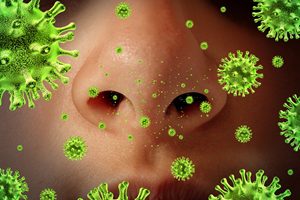
Stuffy and runny noses. Watery and itchy eyes. Headaches and sneezing. You've likely experienced these symptoms if you suffer from allergies. And you've likely had to deal with them more this year than any other year before. Why is that? Many areas of the country are facing one of the worst allergy seasons in recent memory due to either prolonged winters or overly dry conditions.
This has prompted many sufferers to go to great lengths to defend themselves from the onslaught of almost invisible pollen particles that float through the air. New air conditioners, dehumidifiers or air filters help guard the home against invading allergens. A change in lifestyle — how you eat or when you go outside — can also help prevent symptoms. But eventually, in order to defeat allergies, you have to get to the root of the problem: what causes them?
Feel confident you don't have to do this yourself and can rely on researchers such as those from the University of Texas Medical Branch at Galveston. They recently discovered a key reason why people become allergic to ragweed pollen and other allergies, as well as why people develop allergic asthma. When pollen enters a person's body, their immune system overacts and sends neutrophils, or a type of white blood cells, to their airways.
Neutrophils helps prevent infection and causes inflammation, which also helps defend the body from injury or infections. Saniv Sur, a professor in the department of internal medicine at UTMB, believes that this is a first step in better managing allergies: "We suggest that inhibiting recruitment of neutrophils by blocking chemokines may be a unique strategy for preventing pollen-induced allergic disorders."
For more allergy solutions, visit Allergy Be Gone's store for a wide range of allergy control products.









